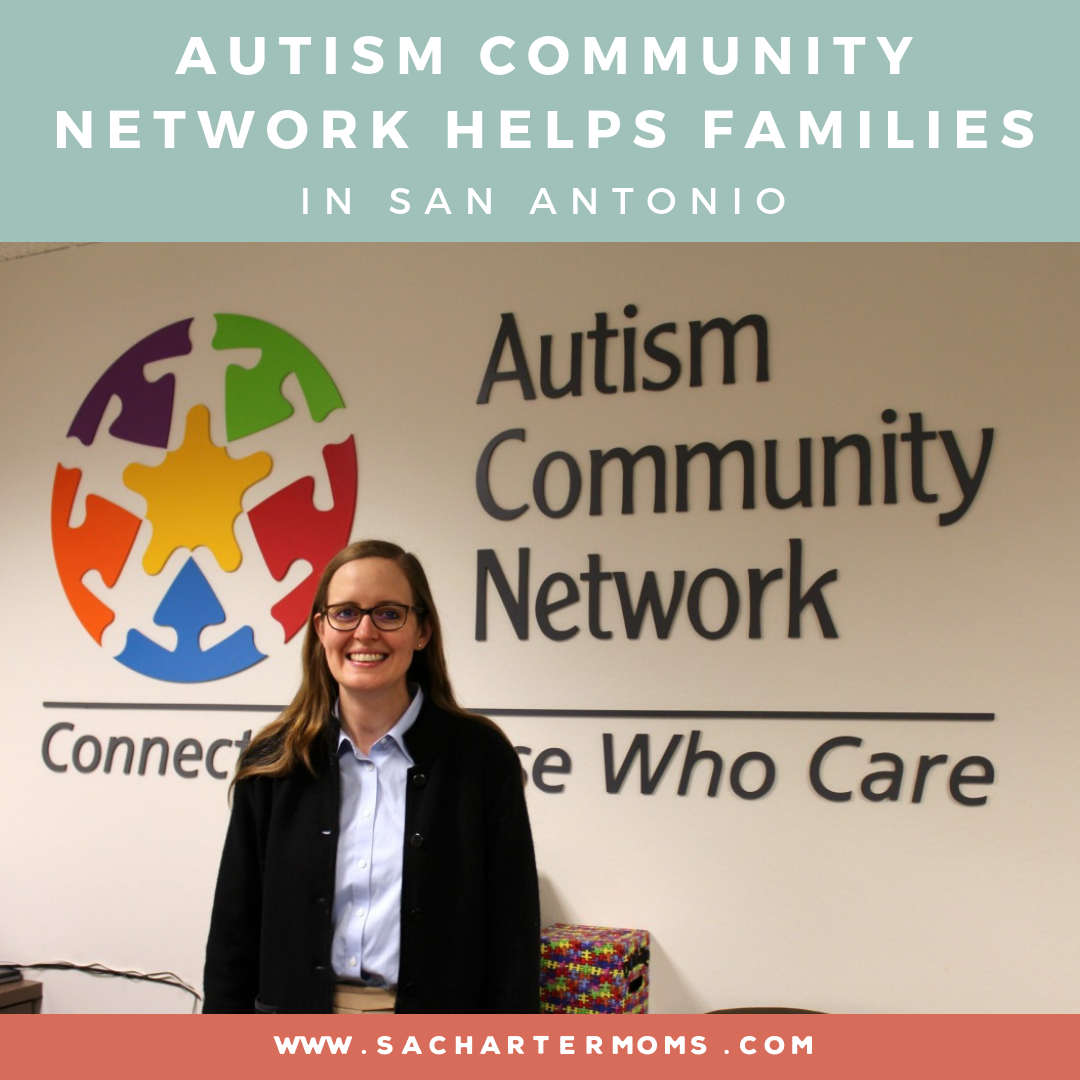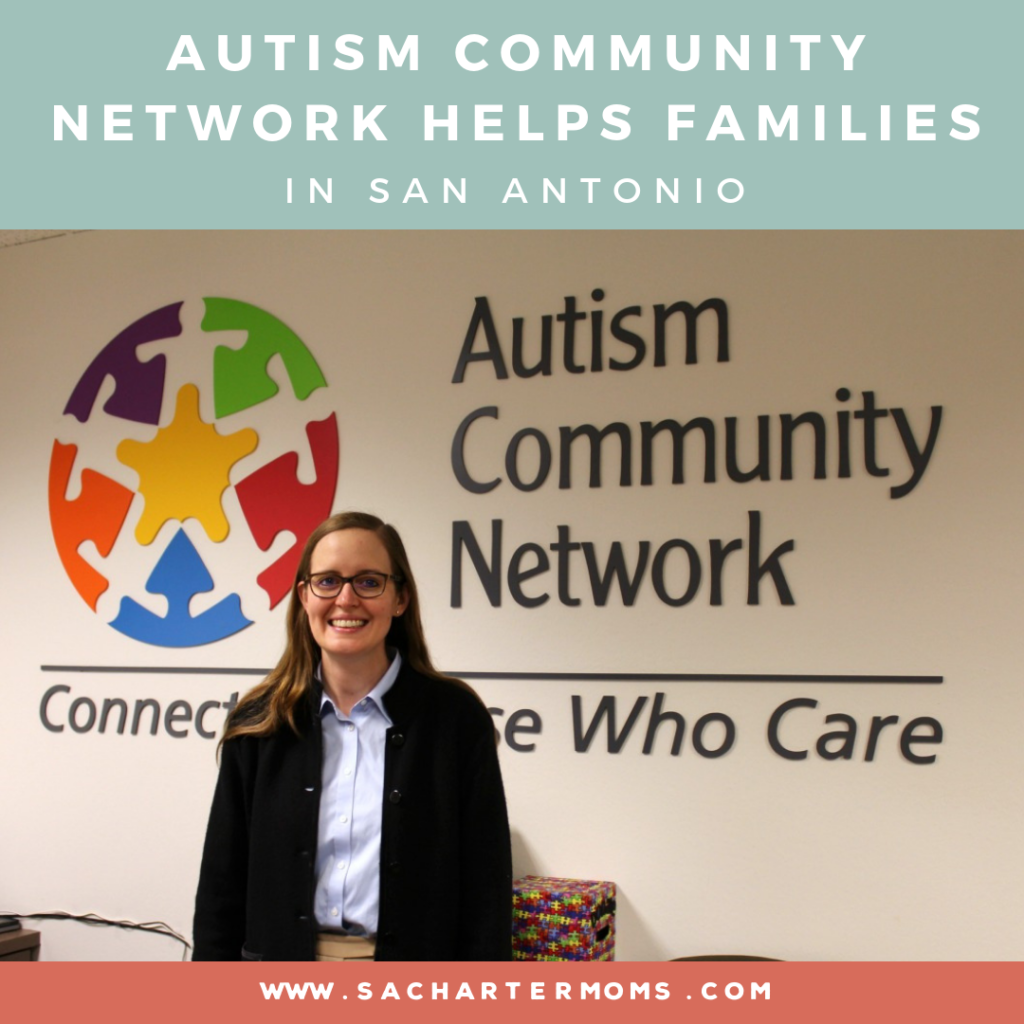
Autism Community Network (ACN) helps families get a diagnosis of whether or not their children are on the autism spectrum, and provides access to resources like classes and referrals to help their children reach their full potential. I recently toured their facility to observe the diagnostic process and learn more about their programs. Every year, a new set of children start showing signs of autism, and raising awareness of Autism Community Network San Antonio among parents and professionals may lead to more early diagnosis and intervention.
ACN was founded in 2008 as a nonprofit by a group of health care funders, including the Kronkosky Charitable Foundation, who were concerned about the difficulty for families trying to access development services for young children. Their facility is located on the ground floor of a mid-rise building at 4242 Woodcock Drive, Suite 101, San Antonio, TX 78228 (map), in an office park on the west side of San Antonio, not far from the Medical Center.
The highlight of my visit was watching a multi-disciplinary team during a diagnostic session. I also learned about how ACN supports families through parent classes and connections to programs like Autism Lifeline Links. In the broader community, ACN offers professional development and supports its mission through fundraising events. As the parent of a child with autism, I can appreciate the importance of ACN and how it may prevent some of the struggles our family experienced when my son was younger.
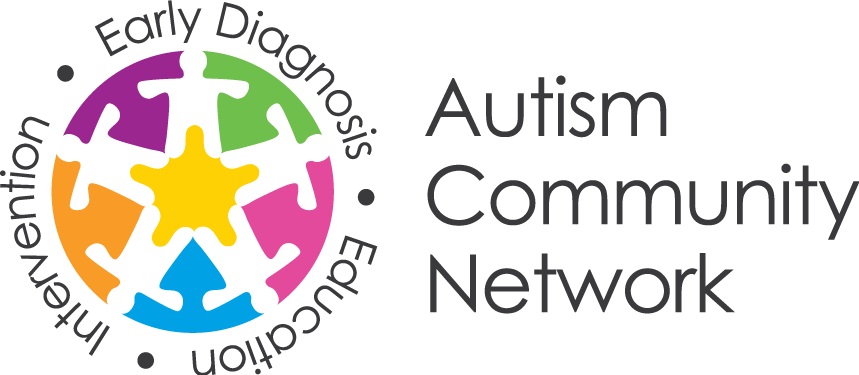
The core of what ACN does is offer high-quality diagnostic services to young children up to age six. There is a shortage of qualified professionals in San Antonio who can make an autism diagnosis. According to Dr. A. Patricia “Patty” Del Angel, Chief Medical Officer, “When it comes to an autism diagnosis, parents complain that the diagnosis providers are not spending enough time with the children. They did not get to see the children for enough time to know.” At ACN, the diagnosis is made by a multidisciplinary team of professionals, and parents are immediately introduced to resources to find help.
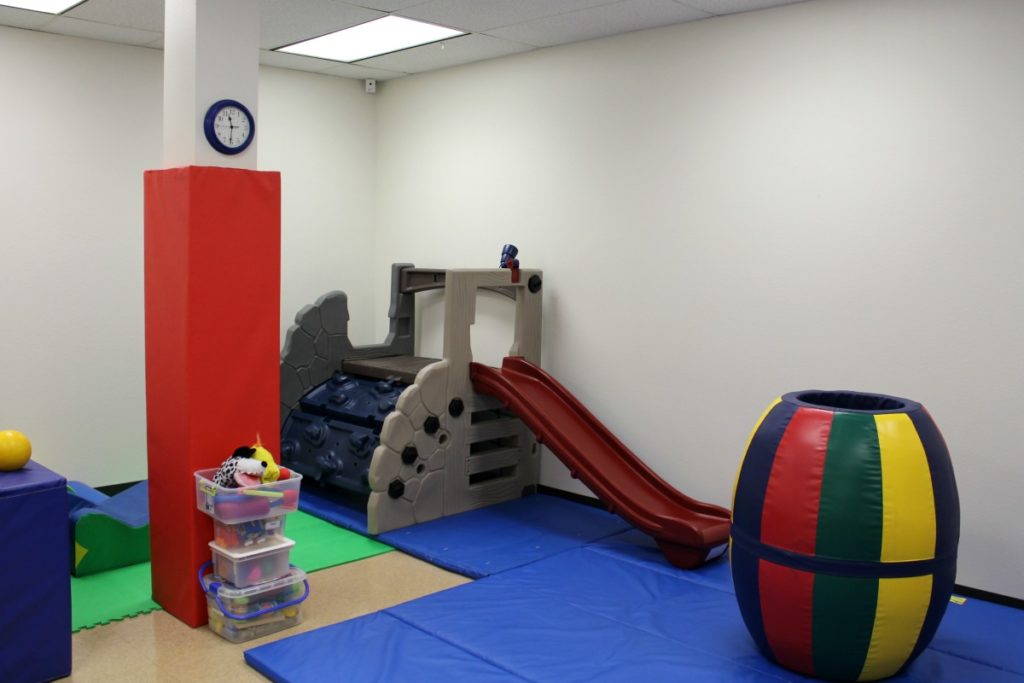
The process of diagnosing a child with autism often starts with a referral from a primary care physician. The American Academy of Pediatrics recommends screening children for autism when they are 18–24 months old. Once a child comes to ACN, the first step in the diagnostic process is a Level 2 Focused Assessment (L2FA), which involves an appointment with one clinician who administers a survey to evaluate language and social skills and other behaviors.
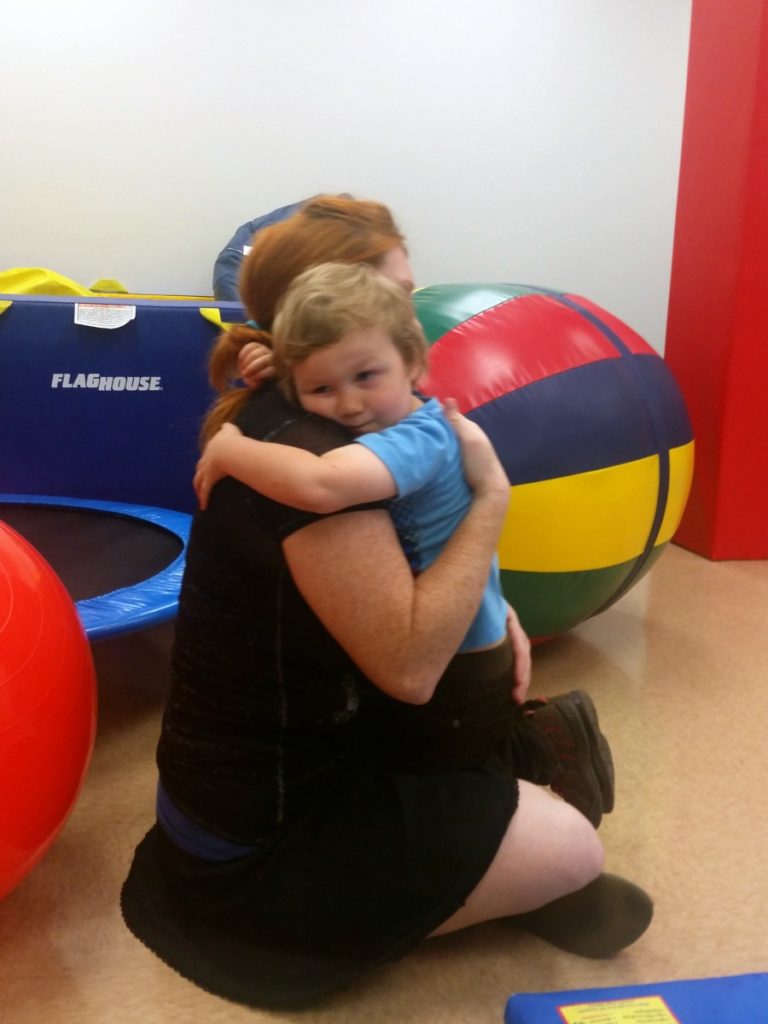
Children who score positive on the L2FA are scheduled for a Diagnostic Evaluation with four clinicians. This is a high-quality autism assessment, and ACN is one of the few institutions in the region that offer this program. Unfortunately, despite offering six sessions per week, there is currently a year-long waiting list for a Diagnostic Evaluation at ACN.
During my visit, I observed part of a Diagnostic Evaluation. The child and her family had arrived at ACN at around 8:30 a.m. for a meeting with the clinical team and to go over the child’s history. Then, the team observed the child and decided which ADOS module to use, depending on the child’s age and an estimate of her developmental functioning.
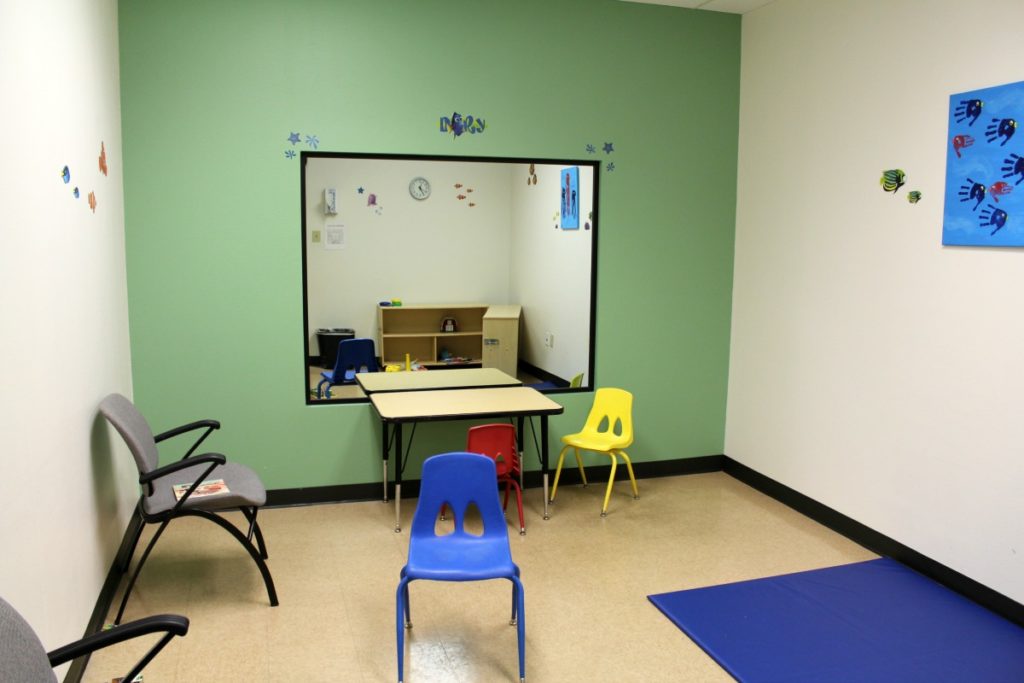
When it was time for the child to go to the diagnostic room, the team observed how she handled the transition, which are often a challenge for children with autism. The diagnostic room is small and square, furnished with a rug, a few chairs for adults and children, a small table, and lots of toys. While one or more clinicians interacts with the child in the diagnostic room, the others can observe through a one-way mirror from a darkened side room. The session is recorded so they can listen later, if needed.
The diagnostic session I observed was for a young, dark-haired girl, about two years old, who had completed her L2FA about a year ago. Her mother brought her to ACN because she was worried about her daughter’s social interactions with new people, her stress when being dropped off at day care, and her anxiety in new situations. The clinical team I observed included Dr. Patty, Occupational Therapist (OT) Dr. Carrie Alvarado, Speech-Language Pathologist (SLP) Mary Fleenor, and Board Certified Behavior Analyst (BCBA) Cindy Reidinger.
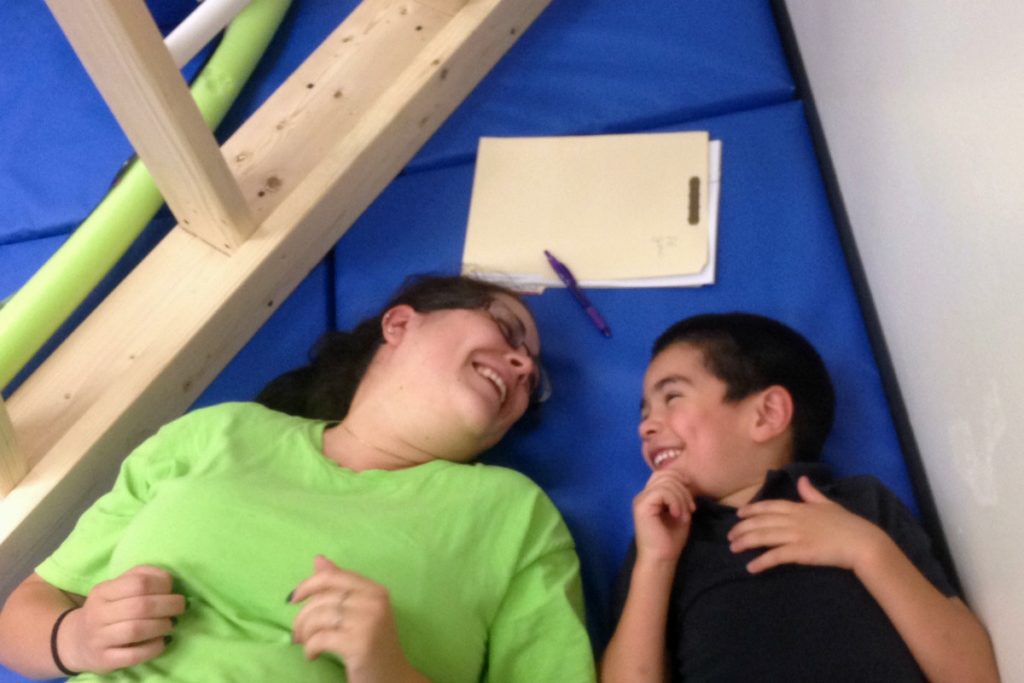
Parents may worry that the diagnostic session will be stressful for their children, but what I saw looked mostly like play. The mother came into the diagnostic room to help manage her daughter’s anxiety; the only distress I observed was when Reidinger asked the daughter to briefly separate from her mother. The clinicians took turns playing games like hide-and-seek; played with toys like blocks, stacking cups, and balloons; and flipped through a board book. Meanwhile, the clinicians in the observation room marked the assessment modules for factors like the girl’s vocabulary and length of sentences, her eye contact and shared attention with the clinicians and her mother, her ability to follow the give-and-take of games and conversations, and her steadiness on her feet and use of her fingers.
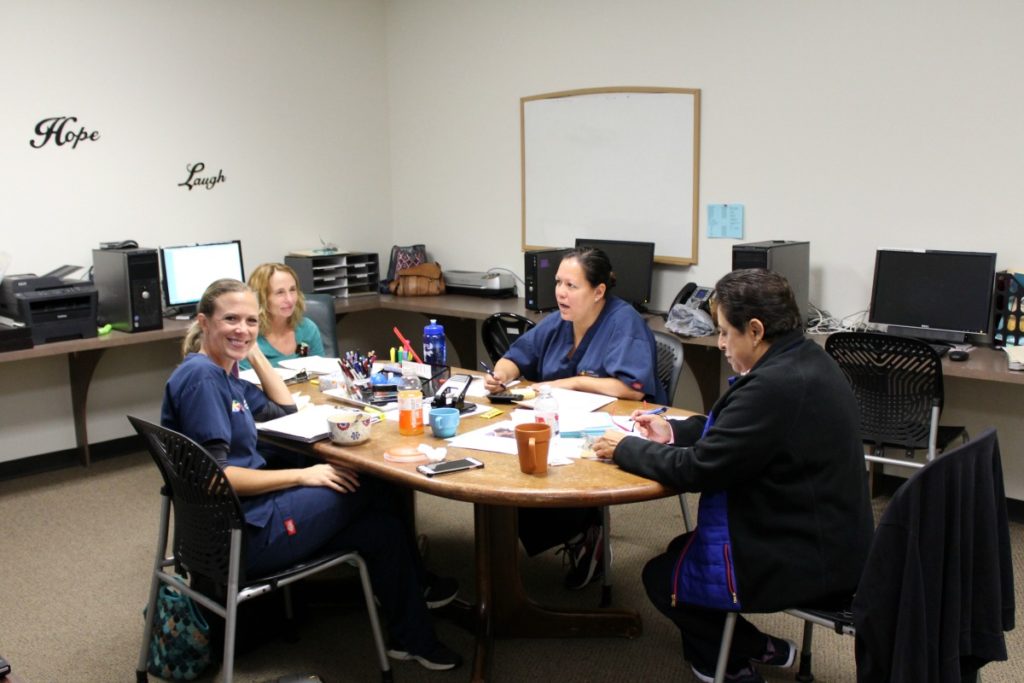
The diagnosis is collaborative and involves all four experts on the interdisciplinary team. After the diagnostic session, they meet in a conference room to score their assessments and discuss the results. They use the criteria in the DSM–5, as well as the older DSM–IV, to reach a diagnosis. Dr. Patty delivers the results to the family and offers to make referrals to organizations like Any Baby Can and Autism Lifeline Links. While the family watches a video, Dr. Patty writes the reports.
ACN is making a difference in improving access to high-quality autism diagnostic services. In 2016, ACN performed 224 Diagnostic Evaluations like the one I observed. Those appointments came from 689 L2FAs; 225 of those were referred for Diagnostic Evaluations, and there was one no-show. Of those referrals, 77 percent were boys and 23 percent were girls. They came from 26 counties and 114 zip codes; 75 percent qualified for Medicaid. At the Diagnostic Evaluations, 124 children (55 percent) were diagnosed with autism, and 100 were not. When offered a referral to Any Baby Can, 78 percent said yes; for Autism Lifeline Links, 70 percent said yes.
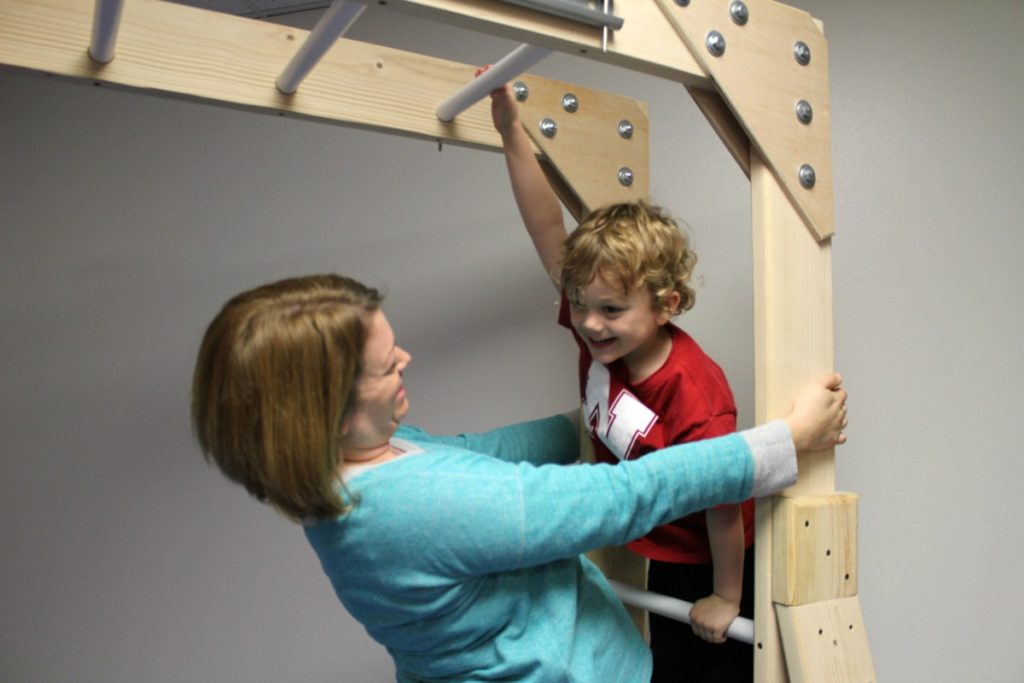
In addition to diagnostic services, ACN supports parents through classes and programs. One-time Family Empowerment Classes are free and cover topics like language skills, special education, and toilet training. Multi-session Family Empowerment Courses cost a nominal fee and go more in depth on topics like Applied Behavior Analysis (ABA), Floortime, communication skills, and sensory processing. ACN brings families together for inclusive gatherings like the Holiday Family Event on December 2, 2017; the ACN Facebook page is a good place to stay informed about future events.
Related to special education: Through a collaboration with Trinity University, ACN can now offer families an Independent Educational Evaluation. If a parent is not satisfied with the special education assessment performed by their child’s school, they can turn to ACN as an independent evaluator. This complements ACN’s mission of improving access to high-quality autism diagnosis services, and extends that reach to young, school-age children.
ACN refers families to Autism Lifeline Links, which maintains a community resource guide so that caregivers of children an adults with autism have a place to look up the help they need. The guide covers topics as diverse as dentists and summer camps. My family has used word-of-mouth and trial-and-error strategies to find providers; having a list in one place would have saved us a lot of stress during my son’s early years. Learn more about Autism Lifeline Links in these articles from Texas Public Radio, La Prensa, and The Rivard Report.
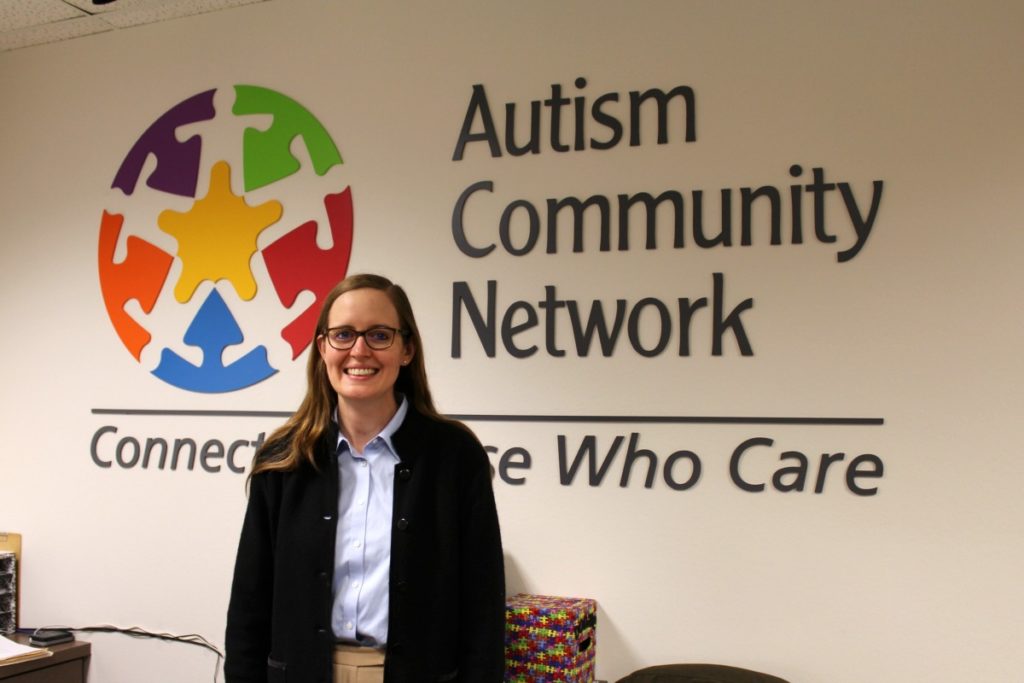
ACN also offers professional development and supports its mission through community events. Professional development options are available for teachers, aides, and professional like OTs and SLPs. The annual Autism Community Forum brings together experts and is a bridge to the medical profession. Le Brunch des Chapeaux is a stylish social event that raises funds for ACN; Alamo City Moms Blog has profiled its origin.
Observing a diagnostic session helped me understand ACN’s important role in giving families access to high-quality autism diagnostic services for young children. My visit also helped me understand ACN’s broader mission in educating and empowering families to access resources to support their children with autism. Spreading the word about Autism Community Network will help more children get diagnosed early and get referred to the services that will help them reach their full potential.
Read more:
- “ACMB Presents: Autism, A Mother’s Letter,” Erin Kirwan, Alamo City Moms Blog, April 27, 2016
- “Autism: We Don’t Whisper My Daughter’s Diagnosis,” Candice Curry, Alamo City Moms Blog, September 5, 2014
- “My Child Was Diagnosed With Autism. Now What?,” Amy Ferraro-Rodríguez, Alamo City Moms Blog, January 8, 2014
- “Wait times for Autism diagnosis in SA can be two years,” Randy Beamer, News 4 San Antonio, October 27, 2016
- “Autism Community Network offering free family empowerment classes,” Lynette Vega, News 4 San Antonio, November 28, 2016
- “Autism Lifeline Links Launches In SA,” Wendy Rigby, Texas Public Radio, October 18, 2016
- “First-of-its-kind autism online resource unveiled in San Antonio,” Christina Acosta, La Prensa, October 23, 2016
- “Autism Lifeline Links: A One Stop Shop For Area Autism Resources,” James McCandless, Rivard Report, October 18, 2016
- “San Antonio Spotlight: Autism Community Network,” Lisa Nash, Alamo City Moms Blog, March 20, 2015
